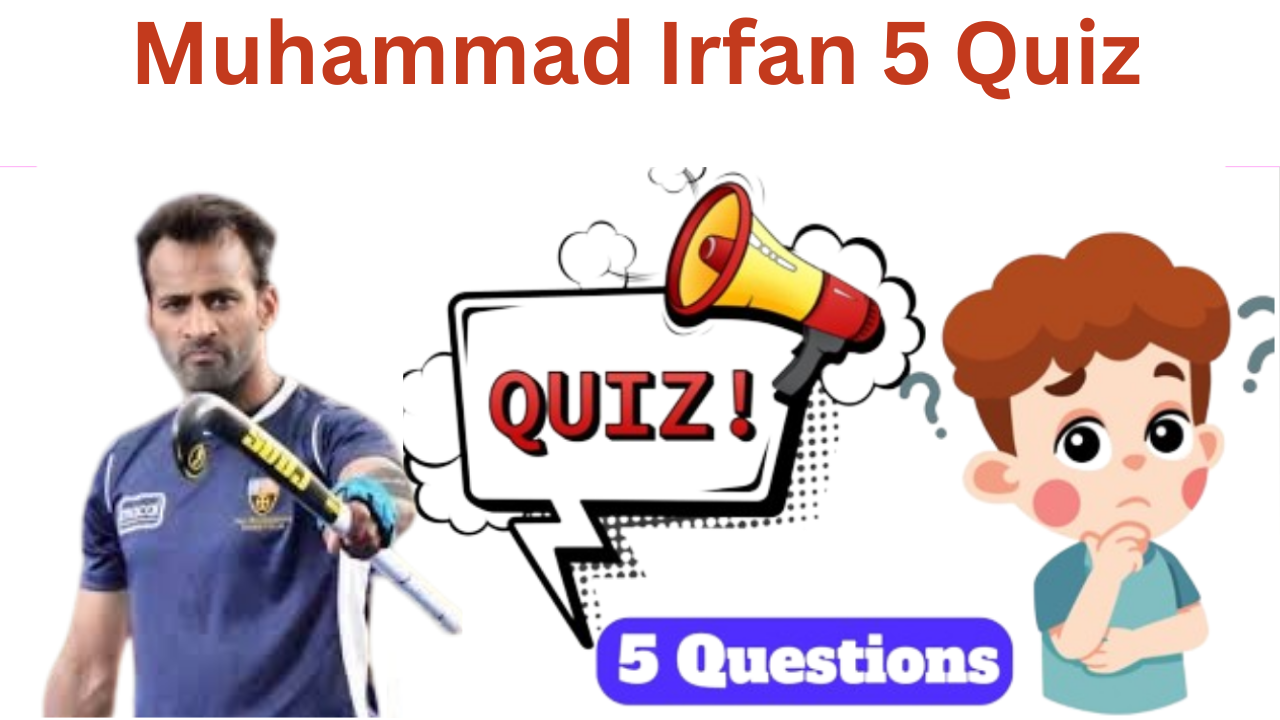Islahuddin 5 Questions Quiz

Islahuddin 5 Questions Quiz. Hey, Sports Lover Welcome To FballQuiz Where You Gain Knowledge Related TO Kockey And Football Players As Well As Knowledge Related TO Other Sports Athletes Around The World. Today We Are Here With 5 Questions Related To Pakistani Hockey Player Mr Islahuddin. He Was Born In 1948. He Remains As Captain Of Pakistan National Hockey Team And Won the Hockey World Cup For Pakistan In 1978. He Was a member of the team that won the 1971 World Cup under the captaincy of Khalid Mahmood in Barcelona. He was captain of the 1975 World Cup runner-up team and the 1978 World Cup winning team. He was a gold medalist in the 1970 Asian Games held at Bangkok, the 1974 Asian Games held at Tehran, and the 1978 Asian Games at Bangkok.
Test your knowledge with this quiz about Islahuddin. Click on the right answers. It’s fun and will help you learn Something New. Thanks!
Results
Oh You Failed But No worries! You can always revisit and finish the quiz later. Positive and informative

#1. Islahuddin Siddique is a famous player in which sport?

#2. Islahuddin was the captain of which national hockey team?

#3. In which year did Islahuddin lead Pakistan to victory in the Hockey World Cup?

#4. Islahuddin is known for playing in which position on the hockey field?

#5. Which prestigious award did Islahuddin receive for his contributions to hockey?
About Islahuddin

Islahuddin, a prominent Islamic scholar and philosopher from Pakistan, has made significant contributions to the intellectual and spiritual landscape of the country. Born in Lahore in 1931, Islahuddin’s scholarly pursuits have been deeply influenced by his rich cultural heritage and his commitment to promoting Islamic knowledge.
Islahuddin’s academic journey began at the University of Punjab, where he studied philosophy and Islamic studies. He later pursued advanced studies at the University of Cambridge, where he specialized in Islamic philosophy. His exposure to Western intellectual traditions broadened his perspective and enabled him to engage with Islamic thought in a more critical and nuanced manner.
Islahuddin’s scholarly contributions have been wide-ranging, encompassing various aspects of Islamic philosophy and theology. He has written extensively on topics such as epistemology, metaphysics, ethics, and social philosophy. Islahuddin’s work is characterized by his deep understanding of classical Islamic sources and his ability to engage with contemporary intellectual debates.
One of Islahuddin’s most significant contributions has been his work on Islamic epistemology. He has argued that Islamic knowledge is not merely a matter of revelation but also requires the use of reason and critical inquiry. Islahuddin’s emphasis on the importance of intellectual engagement has helped to challenge the notion that religious faith is incompatible with rational inquiry.
In addition to his work on epistemology, Islahuddin has also made important contributions to the fields of Islamic metaphysics and ethics. He has explored the nature of reality and the human soul, and he has developed a comprehensive ethical framework based on Islamic principles. Islahuddin’s work has helped to revitalize Islamic philosophical thought and to bridge the gap between traditional and contemporary approaches.
Islahuddin’s commitment to Islamic education has been evident throughout his career. He has served as a professor at various universities in Pakistan and has mentored countless students who have gone on to make significant contributions to the field of Islamic studies. Islahuddin has also been a prolific writer and has published numerous books and articles on a wide range of topics.
Islahuddin’s legacy as an Islamic scholar and philosopher is secure. His contributions to the intellectual and spiritual life of Pakistan have been immense, and his work will continue to be studied and appreciated for generations to come. Islahuddin’s commitment to Islamic knowledge and his ability to engage with contemporary intellectual debates have made him a respected figure among scholars and students alike.







